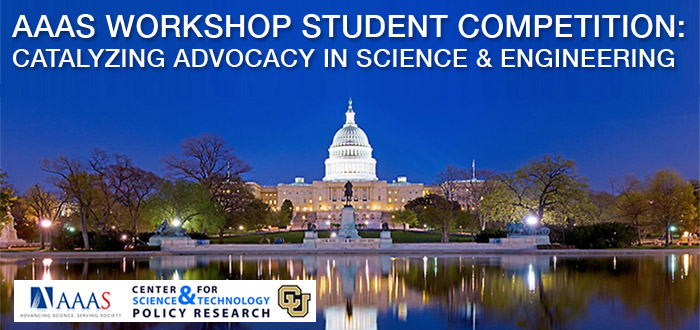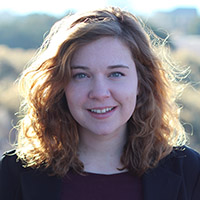
American Association for the Advancement of Science
"Catalyzing Advocacy in Science and Engineering" Workshop Student Competition
Reflections from the AAAS “CASE” Workshop
 Claire Lamman
Claire Lamman
Astrophysics and Physics, University of Colorado Boulder
This workshop was far more informative and impactful than I anticipated when applying, and I had high expectations after reading the reflections from last year’s students. Although I’ve always known that I love talking about astronomy, I never considered communicating science outside of an educational space or even thought about what exactly science policy is. That all changed in the space of a few days, when I had the opportunity to listen to consistently engaging and informative speakers and experience real Hill meetings. Although here I will focus on what I took away from the scheduled activities, one of my favorite parts about the workshop was interacting with other young scientists interested in advocacy. I had no idea there were so many others with a similar interest in communicating science, and all from wildly different disciplines. The fascinating people I met and great conversations had really helped me digest and consider everything we were learning.
This experience has affirmed that I never want to become a politician, but I saw how vital it is for scientists to be able to understand how that very different world works. I reflected on the stark cultural divide between scientists and politicians, and the importance in being able to bridge that gap. One of the sessions presented a thorough introduction to the budget process. Although I won’t remember many of the specifics, it gave me an appreciation for the complexity behind supporting most major projects in my field. After learning about this, it’s astounding to me that many scientists aren’t more well informed about this essential process.
I felt that the workshop schedule was well-paced, with good variety of activities and presentations. We listened to speakers and panel members with incredible backgrounds and experiences, where I learned about the federal budget, the history behind the NSF and AAAS, the relationship between science and policy, and how congress “really” works. The last day, our Hill meetings, was an especially different experience for me. When I first heard that we would have the opportunity to meet with congressional staff, I assumed it would be a sort of formality for our benefit. But instead I felt like I had a clear purpose for being there, I was listened to, and what I was saying mattered. It was also interesting to see that, despite being a historically polarized congress (based on support for bipartisan bills), many representatives and senators don’t view their party affiliation as integral to their political identity as most people believe, and many are more concerned with working on long-lasting impact than the politics which make typical headlines.
My favorite speaker was Rush Holt, the CEO of AAAS. He described some candid insights into the relationship between science and policy that I had never really considered. The biggest problem he’s observed is not that politicians don’t care about science, but that it is ignored. In his words, “science suffers more from neglect than misinformation”. He explained that scientific advocacy is about more than just funding. We need to tell the story of the evidence and explain that it is part of the journey to reliable decision-making. It’s difficult to communicate the idea that ideas based on evidence can be imperfect, but the important thing is that they evolve with new information. As another speaker, Judy Schneider, put it: “Ya gotta get out of the lab and speak up!”.
